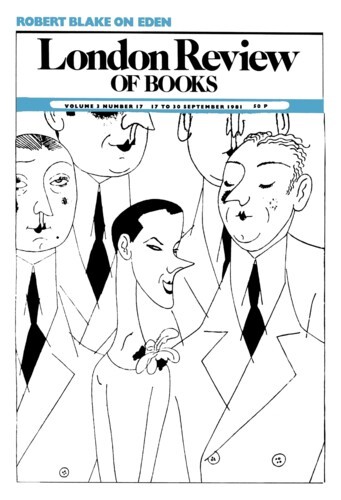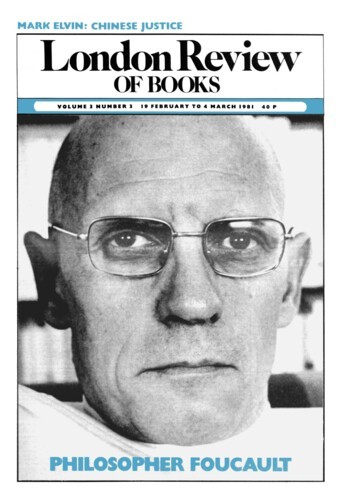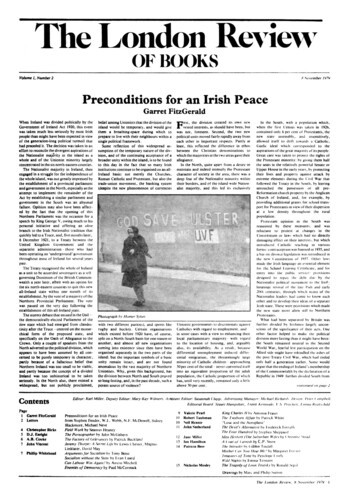Images of Violence
Phillip Whitehead, 17 September 1981
As the sullen summer of ’81 ends, we know that we shall remember it for images of violence: a soldier writhing aflame on the streets of Belfast, rioters on British streets using petrol bombs, and two images of the British bobby – bruised and frightened men cowering in a blinded phalanx under riot shields, and the kicked-in doors and sore heads of Railton Road. It has all been glimpsed through the looking-glass world of television, which many have been tempted to enter. The debate about ‘copycat’ riots has been joined: it follows long and anguished argument about the extent to which violent or aberrant behaviour seen on the box replicates itself among the viewers.



